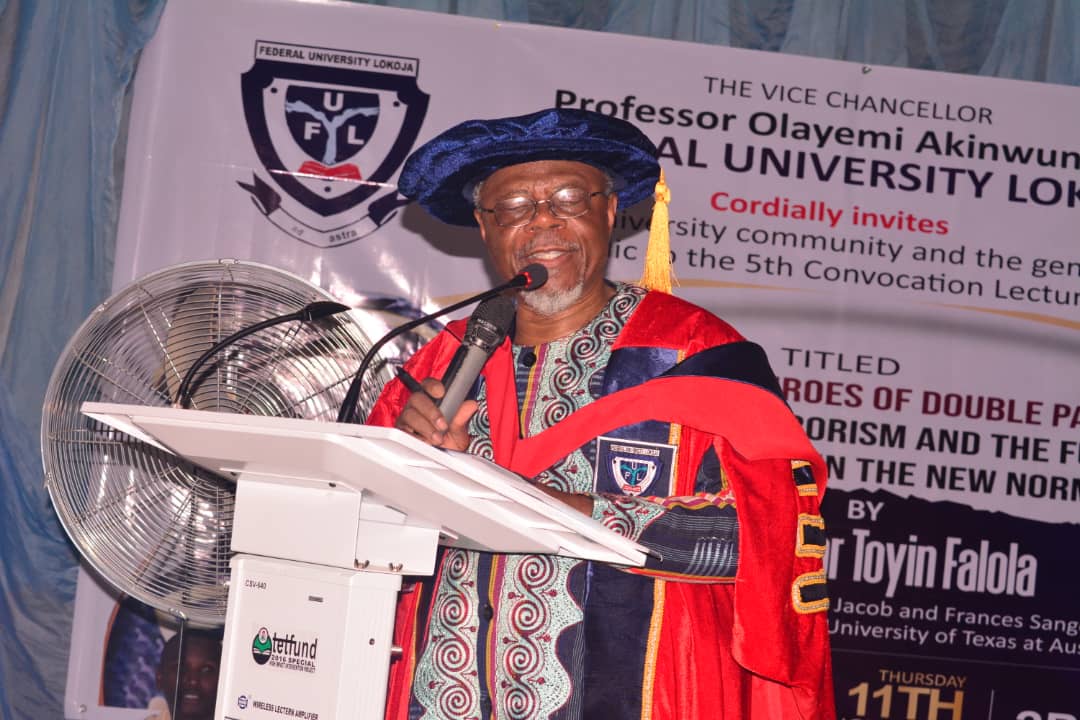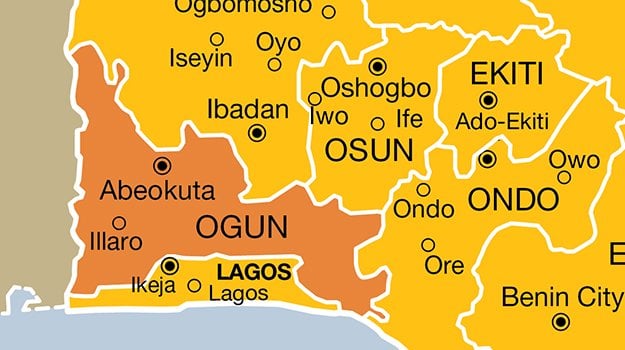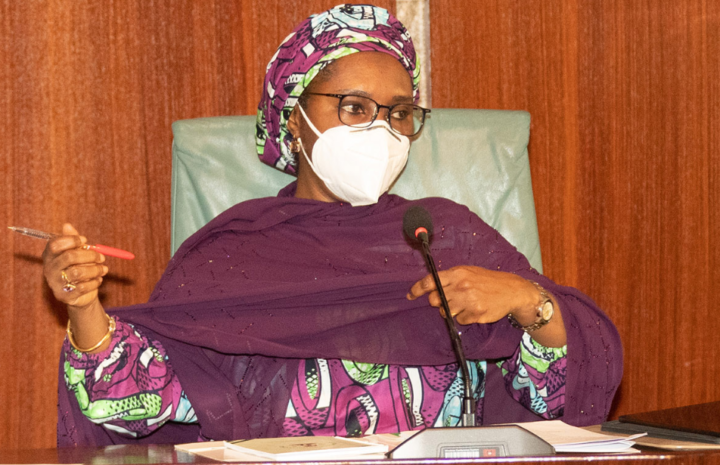Toyin Falola, professor of history at the University of Texas, says African leaders need to adopt new ways to address terrorism.
Falola said this on Thursday, while delivering the fifth convocation lecture of the Federal University Lokoja, Kogi state.
Speaking on the topic: ‘Africa in the Throes of Double Pandemic: COVID-19, Terrorism and the Future of Education in the New Normal’, he said child education in many African countries has been affected as a result of terrorist activities.
According to him, there is a need for African countries “to readjust and adopt a new perspective toward the fight against terrorism”, if sustainable development will be achieved on the continent.
Advertisement
“By far, the most horrifying implications of terrorism’s derailment of education is that terrorism itself gets to grow and fester even more in the localities where youngsters are unable to attend schools,” he said.
“It causes grievous harm to the education of youngsters which, in turn, promotes even more terrorism. Therefore, this vicious cycle operates as a self-fulfilling prophecy, making it saddening to state the least.
“When pupils are put out of school due to terrorist activities, they are mostly left idle with little or no gainful engagements. This saddening atmosphere makes them ready tools for terrorist sects to carry out their evil machinations. These students sometimes become willing and sometimes forced recruits, helping them carry out more devastating attacks that keep others out of school.
Advertisement
“They are indoctrinated and turned into human shields and suicide bombers. All of these paint a ‘red-alert’ situation. Since education brings about economic transformation, it can be unequivocally said that terrorism is partly frustrating the economic growth quest of many African nations.
“Fighting terrorism is not purely about prosecuting armed warfare against insurgents and achieving security; it should be seen as a fight for economic survival, growth, and development.”
He expressed concern over attacks on schools, especially the abduction of girls, noting that such activities put the continent at a disadvantage in terms of growth.
“Whenever such crises as terrorism bedevil any geographic space, there are disproportionate gendered impacts. This state of affairs is greater felt when we discuss the impact of terrorism on education. In essence, the girl-child facing terrorism in Africa is put at an exceeding disadvantage,” he said.
Advertisement
“Already, the number of female children out of school surpasses males by an excessive margin (Human Rights Watch puts the figure at an astonishing 49 million). Although the data for the boy-child is lacking, one can envisage that the number of out-of-school-girl-child would have grown exponentially since various terrorist groups began attaining domination in various pockets of the continent. It is noteworthy that the various terrorist groups specifically target female children and students more in their attacks on schools.
“For instance, the mass school abductions by Boko Haram, including Chibok and Dapchi, have involved only girls. Reports state that these are later forcefully turned into operatives for the terrorists, including suicide bombers.
“Thus, in a region where there is extant general disinclination towards girls’ schooling, terrorist activities deal a decisive and lethal blow on the aspirations of well-meaning stakeholders to educate and empower the female population.
“As a result of the persistent terrorist attacks on educational institutions, the numerous disruptions in the learning flow have discouraged many individuals from pursuing education. Consequently, the number of illiterates has begun to increase in those areas severely affected by terrorism, thus, creating room for averagely motivated students to drop out of school and desperately do anything to keep surviving, including being lured into becoming a part of the terrorist cells in Nigeria.”
Advertisement
He also spoke on the need to adopt technological alternatives in the education sector as part of efforts to address the impact of the COVID pandemic on schools.
Advertisement
Add a comment





